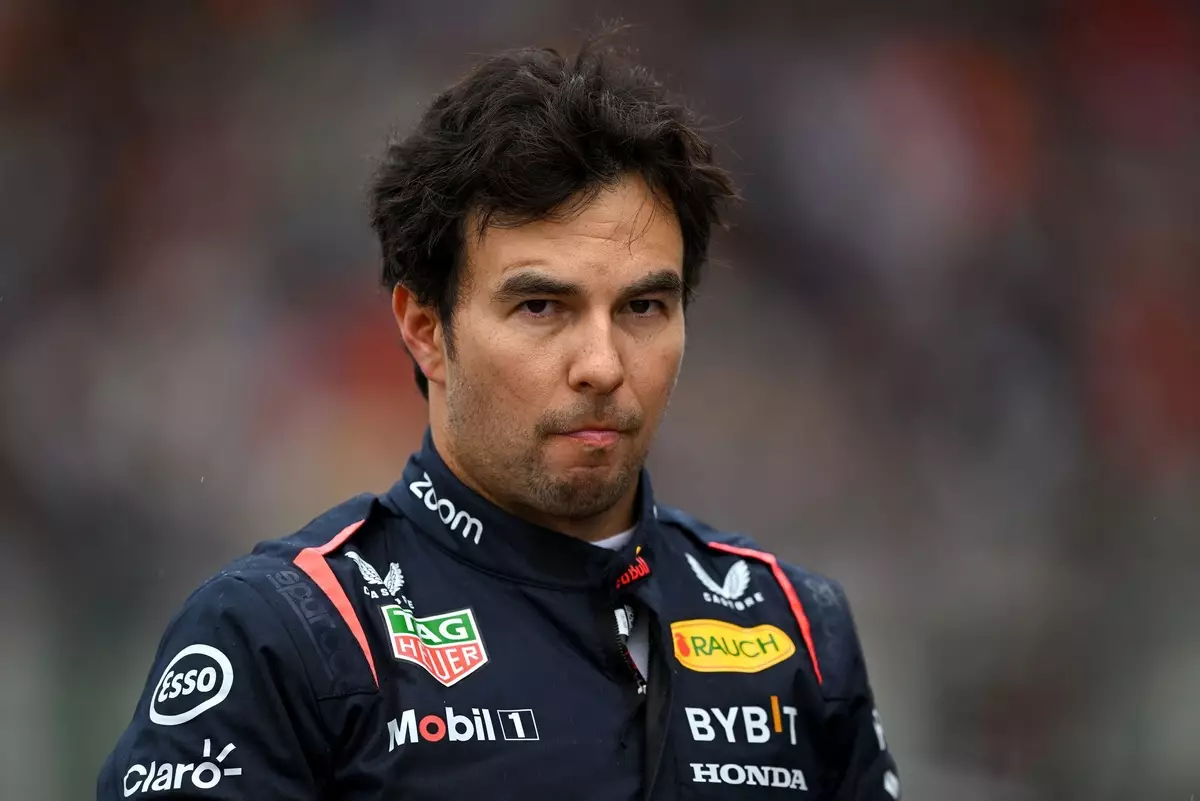In the unforgiving realm of Formula 1 racing, where split-second decisions can alter the trajectory of careers, Sergio Perez has emerged as a poignant figure for both his driving prowess and the pressures he faced at Red Bull Racing. His recent revelations expose not only personal struggles but also the broader dynamics prevalent within one of the sport’s most successful teams. According to Perez, the pressure he experienced during his tenure was exacerbated by Red Bull’s failure to protect him from the external chatter surrounding his future, thus creating what he described as a “toxic environment.”
The implications of such psychological strain go beyond mere performance; they highlight the delicate balance between driver welfare and team dynamics that can easily tip into chaos. While racing is inherently competitive, the culture that fosters support and resilience among team members can often dictate individual success or failure.
Unraveling of a Contract
Reflecting on his early optimism after securing a contract extension slated until 2026, Perez discusses how that very assurance became a double-edged sword. The moment the ink dried on that contract, the attention intensively shifted to his performance, making it clear that confidence from the team was fleeting. “I had a signed contract in Monaco,” he recounted, “but from the next race onwards, everyone was talking about my future.” Such statements are a stark reminder of how swiftly perceptions can shift within high-stakes situations, and how the echo of looming uncertainties can dominate a driver’s mental landscape.
Red Bull’s decision to maintain a public narrative about Perez’s future only served to heighten pressure in an already competitive sphere, leading to adverse repercussions for both the team and the individual. As Perez noted, everyone involved felt the pressure, including engineers and team strategists who, psychologically weighed down, might have found it difficult to execute their duties efficiently.
The Aftermath: A Bitter Transition
The fallout from Perez’s exit has led to significant ramifications, not just for him, but also for Red Bull. With the subsequent hire of Liam Lawson, followed by Yuki Tsunoda, the team failed to bounce back in the way it anticipated. Both newcomers struggled to deliver the results expected in comparison to their predecessor, illustrating the challenge of filling the shoes of a seasoned driver. Expectations must be managed carefully; teams are not always cognizant of the deeply personal and psychological implications of drastic changes.
Red Bull’s advisor, Helmut Marko’s earlier remarks attributing the entire blame to Perez for the potential loss of team bonuses reflected a broader tendency to scapegoat that can exist within competitive frameworks. Yet it is equally important to recognize that such decisions reverberate within the entire organization, ultimately affecting morale and productivity.
Regret in Retrospect
Perhaps the most striking element of Perez’s post-Red Bull narrative is the revelation of regret emanating from within the team. “I know that deep down they are very sorry,” he stated, which reveals an underlying acknowledgment that value misjudged can have devastating effects on team cohesion. This admission speaks volumes; it suggests that, amidst the heated battles for championship points, the human element can be rapidly overlooked, leading to losses that are both quantifiable and intangible.
Fueling this sentiment is the narrative around designer Adrian Newey’s departure, with Perez attributing significant setbacks to the subsequent loss of his expertise. The correlation he draws between leadership changes and team performance raises questions about how critical roles influence not only vehicle technology but also team dynamics and driver support systems.
The Road Ahead
As Perez navigates the complexities of his career in the wake of his departure from Red Bull, he underscores a crucial lesson: successful racing extends far beyond the capabilities of individuals and machines. It is about fostering a harmonious environment that nurtures talent while managing immense pressures. The future of Formula 1 demands this evolution, urging teams to prioritize mental resilience alongside technical prowess, ensuring that the relentless pursuit of victory does not come at the cost of their most valuable asset—the drivers.


Leave a Reply